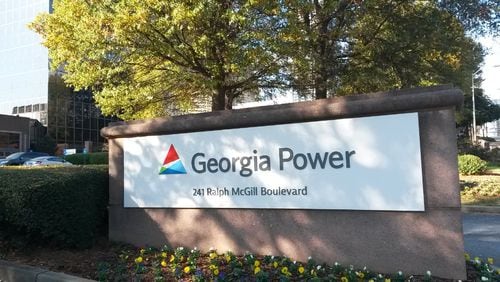After months of protests and hearings over Georgia Power’s request to raise power rates and fees, elected state regulators are set to vote Tuesday on the more than $2-billion proposal.
The decision could affect the monthly electric bills of people throughout much of the state, potentially adding about $200 a year for the average residential customer, though Georgia Power has sidestepped questions about the ultimate average residential cost if its entire three-year proposal is approved as initially requested.
Proposed increases in costs to consumers have sparked pushback from various parties, including staff of the elected Georgia Public Service Commission, the body that will vote on the case. PSC Chairman Lauren “Bubba” McDonald recently offered a proposal that is somewhat similar to what staff have suggested.
Entities from the U.S. Department of Defense to consumer, environmental, solar and business groups, including one representing Publix, Walmart and others, have resisted various changes that Georgia Power says are necessary.
Among the biggest sore points: Forcing customers to continue paying Georgia Power profit rates above a national utility average and nearly doubling a fixed fee embedded in monthly electric bills, raising it from $10 a month to nearly $18. The company recently reached a partial proposed settlement with some parties that instead would set the fixed charge at $14 a month.
More broadly, the company has said it faces a variety of growing expenses including those tied to improving reliability of the electric grid, making storm repairs and dealing with ash leftovers at aging coal plants.
The PSC sets how much the company can charge customers and how much profit it can collect from them. In return, Georgia Power gets a government-set monopoly over most of its territory.
Company spokesman John Kraft wrote in an email that “We fully respect the rate case process and are continuing to work with all parties to ensure Georgia Power’s 2.6 million customers continue to have clean, safe, reliable energy with rates below the national average.”
The PSC generally has approved Georgia Power rate increases in the past, though at levels lower than what the company initially requested.
Staff for the PSC wrote in recent filings that while some increases are deserved, the scale of what Georgia Power wants “will not serve the public interest.”
“If granted, the company’s request will impose a hardship on many of its customers,” PSC staff said. “Moreover, the record shows that the requested increase is not necessary for Georgia Power to provide safe and reliable service or for its continued financial strength.”
Staff warned that the increases would hit during the same period in which customers also might be asked to pay $1 billion in costs tied to Georgia Power’s over-budget and long-delayed nuclear expansion at Plant Vogtle, assuming the project meets the company’s latest timeline. That cost would represent only a portion of the Vogtle project’s cost to ratepayers over time.
The question about profit rates for Georgia Power comes as many regulators around the nation have lowered targets for profits utilities are allowed to collect.
PSC staff was critical of profit targets that not only would remain higher than the national average but also called for Georgia Power to keep a chunk of profit overages, benefiting shareholders but not customers.
“… holding on to almost half a billion dollars in revenues above the national average sounds good for shareholders, but it strains credulity that customers struggling to pay their power bills would conclude their interests are served by a plan that permits the Company to keep that amount ….”
And a group representing major retailers wrote that with huge Vogtle costs looming, setting profits “too high could harm the state’s ability to remain competitive with neighboring states like North Carolina.”
But Georgia Power wrote in a filing that profit cuts backed by some parties, including the Department of Defense, a major electric user at military bases in the state, are “drastic and unwarranted.” They would represent the largest margin reduction “for any utility over the past several decades, notwithstanding the Company’s exemplary performance over the past six years since rates were last set.”
Georgia Power also has proposed blocking residents of any homes built after this year from being on traditional rate plans, instead pushing them to more variable rates that are more tightly tied to shifts in the price of electricity.
Meanwhile, Georgia Power sister company Atlanta Gas Light also has proposed rate increases, which the PSC is expected to rule on Thursday. That decision would affect charges embedded as a line item in monthly bills paid by customers of numerous natural gas marketers served by the pipeline company.
About the Author







